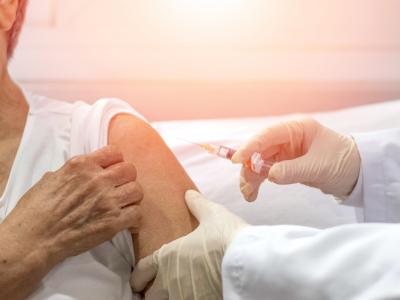Review finds short antibiotic course not tied to worse bacteremia outcome
A meta-analysis of five studies published today in Antimicrobial Agents and Chemotherapy determined that, in patients with bacteremia caused by Enterobacteriaceae, short- and long-course antibiotic treatment did not differ significantly in terms of clinical outcomes.
Experts from Brown University in Providence, Rhode Island, included four retrospective cohort studies and one randomized controlled trial comprising 2,865 patients overall in their analysis. They found that short and long courses (greater than 10 days) of antibiotics did not differ in terms of 30-day all-cause mortality (relative risk [RR], 0.99), 90-day all-cause mortality (RR, 1.16), clinical cure (RR, 1.02), or relapse at 90 days (RR, 1.0).
The authors noted, however, "Further well-designed studies are needed before treatment for 10 days or less is adopted in clinical practice."
Feb 26 Antimicrob Agent Chemother study
CARB-X adds 6 new organizations to its Global Accelerator Network
The public-private partnership CARB-X today announced it has added six new life sciences organizations from around the world, expanding its Global Accelerator Network to 10 groups, according to a CARB-X news release.
"We are expanding our accelerator network to increase support for the development of new antibiotics, rapid diagnostics, vaccines and other life-saving products that the world so urgently needs to fight the rise of drug-resistant bacteria," said Kevin Outterson, JD, CARB-X executive director.
"Antibacterial product development is challenging, and CARB-X's portfolio is growing rapidly. This new network will provide a broader range of scientific, technical, and business support our innovative projects need to progress and succeed." The six new groups add expertise in the development of drugs and rapid diagnostics, business and regulatory strategy, and other highly specialized areas, CARB-X said.
Hailing from six nations, the six organizations are: BaselArea.swiss, the BioInnovation Institute, the Centre for Cellular and Molecular Platforms (C-CAMP), the Foundation for Innovative New Diagnostics (FIND), the German Center for Infection Research (DZIF), and the Institute for Life Sciences Entrepreneurship (ILSE). They join CLSI, MassBio, and RTI International in the United States and the Wellcome Trust in the United Kingdom as CARB-X accelerators.
Since it was established in 2016, CARB-X (the Combating Antibiotic Resistant Bacteria Biopharmaceutical Accelerator) has awarded more than $107.4 million, plus additional funds if project milestones are met, to accelerate the development of antibiotics, rapid diagnostics and other life-saving antibacterial products. Its aim is to invest up to $500 million by 2021.
Feb 26 CARB-X news release












